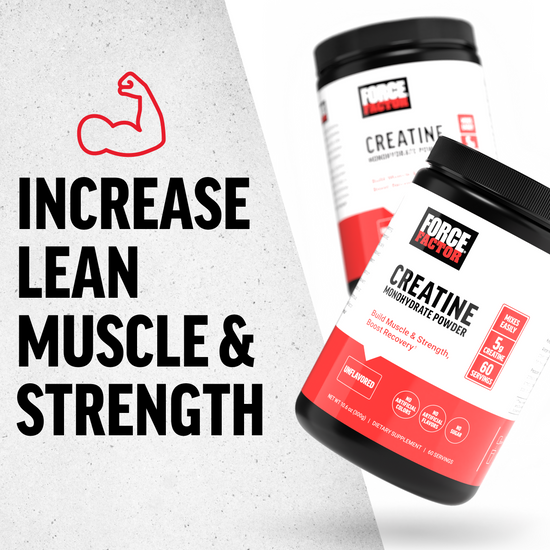Creatine Monohydrate - Truths
Creatine Monohydrate - Truths
Blog Article
See This Report on Creatine Monohydrate
Table of ContentsThe 7-Second Trick For Creatine MonohydrateThe Greatest Guide To Creatine MonohydrateThe smart Trick of Creatine Monohydrate That Nobody is Discussing
The authors recognize a danger of bias with the research styles due to a need for even more clearness over randomization with nearly all researches included. Only 3 of the nineteen researches thoroughly outlined the evaluation of VO2 max.:max_bytes(150000):strip_icc()/Health-Creatine-Monohydrate-Purple-horizontal--e6afd1c7e25f4355ba0a5fbcf0026734.jpg)
This varies from professional athlete to athlete, however. If weight gain via liquid retention is a problem, quit taking creatine 1-2 weeks before racing to counter fluid retention while keeping raised creatine stores. Some individuals experience gastrointestinal pain when taking creatine, such as bloating, cramping, or diarrhea. It is very important to keep in mind that not everyone experiences intestinal distress while taking creatine, and it can often be managed by readjusting the dosage or taking it with meals, as laid out by the International Society of Sports Nourishment.
It's advised to utilize it in powder form. Worries about the long-term impacts of creatine monohydrate supplements on kidney (kidney) function have been elevated. Research studies done by the International Culture of Sports Nourishment and Sports Medication show that short-term and long-lasting usage of creatine monohydrate within advised dosages doesn't run the risk of kidney feature in healthy and balanced people.
Creatine Monohydrate Fundamentals Explained
None of the research studies checked out triathletes. The adverse impacts reported in the research studies related to weight gain. As mentioned, the majority of the research studies made use of a higher-dose loading method (20g+/ day) in a brief period that could be countered and prevented through a reduced dosage (such as 5g/day) for an extensive period.

Let's consider the main benefits of creatine monohydrate. There is solid, reliable research showing that creatine enhances health. Impossible evidence sustains increasing lean muscular tissue mass, boosting strength Click Here and power, adding reps, minimizing time to fatigue, improving hydration status, and benefiting mind health and feature. Every one of these benefits will incrementally reward your health and wellness and improve your "healthspan" as you age.
et al. (2008, July). Laying to rest the myth of creatine supplementation bring about muscle aches and dehydration. Retrieved from https://pubmed.ncbi.nlm.nih.gov/18184753/Eventbrite Report.(2014). Endurance Sports Participant Research. Retrieved from https://eventbrite-s3.s3.amazonaws.com/marketing/britepapers/Endurance_Report_Survey.pdf!.?.!Fernndez-Landa, J. et al.(2023, May). Impacts of Creatine Monohydrate on Endurance Performance in a check these guys out Trained Populace: A Systematic Evaluation and Meta-analysis. Beloved Viewers: Creatine is an organic substance that the body relies on for a constant supply of energy to the muscle mass. It is specifically useful during brief ruptureds of extreme, anaerobic task, such as when lifting weights or sprinting a short distance. Creatine is synthesized by the body from a trio of amino acids, mostly by the liver. The substance additionally is available from dietary sources, generally red meat, seafood and chicken (Creatine Monohydrate). The majority of creatine is stored in the skeletal muscles in a kind known
The Greatest Guide To Creatine Monohydrate
as phosphocreatine, or creatine phosphate. A percentage, much less than 5%, is located in the cells of the mind and testes. Creatine aids in the production of adenosine triphosphate, or ATP. Researchers have discovered that when someone takes creatine supplements while taken part in a program of resistance training, such as weight training, it can aid to build lean body mass. Added studies into the prospective health advantages of creatine supplements recommend it may enhance particular blood lipid levels, help in keeping skin flexible and this article healthy and balanced, aid in some signs and symptoms of Parkinson's illness and rate healing from muscle overuse and tiredness. A healthy person with a well balanced diet that consists of red meat, chicken and fish and shellfish will get an appropriate supply of creatine. Study shows that supplements can be valuable in making sports gains. Some researches have found that making use of a creatine supplement can help build muscle mass and boost strength. When taken in big quantities, some individuals do report experiencing stomach issues. Similar to any kind of nutritional supplement, it is necessary to talk with your wellness care company prior to adding creatine to your day-to-day routine. There are numerous sorts of creatine supplements, which are available in a vast array of dosages. Your doctor will certainly help you evaluate your objectives and can assist you in picking the right supplement for your requirements.(Send your concerns to [email shielded], or write: Ask the Medical professionals, c/o UCLA Health Sciences Media Relations, 10960 Wilshire Blvd., Suite 1955, Los Angeles, CA, 90024. Numerous people take multivitamins daily, in spite of mountains of proof revealing they do not improve wellness quite. Most would be much better off taking creatine monohydrate. Yes, creatine is a health supplement. The majority of people, around 69%, are actually creatine deficient. Even if they never ever lifted a weights, they would certainly still profit from creatine supplements.
Report this page